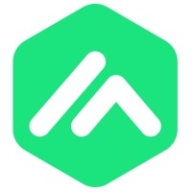

Matillion Data Productivity Cloud and Talend Data Fabric are competing platforms in the data integration and transformation sector. Talend Data Fabric appears to hold an advantage due to its extensive features, despite more competitive pricing and support options offered by Matillion.
Features: Matillion Data Productivity Cloud offers seamless cloud integration, a user-friendly design, and advanced support for AWS ecosystems. It simplifies workflows through visual interfaces, enhancing user accessibility. Talend Data Fabric, on the other hand, provides comprehensive data governance tools, multi-cloud orchestration, and extensive GUI-based management options that cater to complex data environments.
Room for Improvement: Matillion Data Productivity Cloud could improve its capabilities for intricate data environments and broaden its toolset to compete with more versatile platforms. Additionally, increasing the range of supported integrations would add value. Talend Data Fabric can enhance its deployment simplicity, streamline user interfaces for less technically inclined users, and optimize its cost structure for smaller businesses.
Ease of Deployment and Customer Service: Matillion Data Productivity Cloud is recognized for an easy deployment process complemented by strong customer support, enhancing user experience. Talend Data Fabric, though more complex in deployment, offers greater capabilities for larger data environments, potentially leading to an enriched but more intricate user experience.
Pricing and ROI: Matillion Data Productivity Cloud stands out for its competitive pricing structure, offering high ROI due to its affordable cost. Talend Data Fabric, while requiring a higher initial investment, may yield substantial long-term ROI attributed to its extensive functionality and ability to manage complex data processes effectively.
| Product | Market Share (%) |
|---|---|
| Matillion Data Productivity Cloud | 5.0% |
| AWS Glue | 15.3% |
| AWS Database Migration Service | 11.9% |
| Other | 67.8% |
| Product | Market Share (%) |
|---|---|
| Talend Data Fabric | 0.9% |
| Informatica PowerCenter | 6.3% |
| SSIS | 5.9% |
| Other | 86.9% |


| Company Size | Count |
|---|---|
| Small Business | 6 |
| Midsize Enterprise | 10 |
| Large Enterprise | 11 |
| Company Size | Count |
|---|---|
| Small Business | 4 |
| Large Enterprise | 3 |
Matillion Data Productivity Cloud features an intuitive graphical interface, seamless AWS integration, and efficient data management. Its tools streamline complex tasks for SFDC, RDS, Marketo, Facebook, and Google AdWords.
Matillion Data Productivity Cloud provides fast transformations with built-in verification, easy scheduling, and sampling. With automatic scalability and diverse data source support, it simplifies complex data tasks. Users benefit from cloud data warehousing and integrating data into Snowflake while appreciating its ease of use by non-technical teams. Enhancements can focus on frequent API adjustments, improved documentation, faster performance with less latency, and better error handling.
What are the key features of Matillion Data Productivity Cloud?
What benefits and ROI should users seek in reviews?
In industries such as technology, finance, and healthcare, Matillion Data Productivity Cloud is implemented to streamline ETL processes, optimize data pipeline construction, and enhance data migration efforts. It supports efficient data loading and integration between cloud and on-premises databases, aiding industries in managing data-driven projects.
Talend, a leader in cloud data integration and data integrity, enables companies to transform by delivering trusted data at the speed of business.
Talend Data Fabric offers a single suite of apps that shorten the time to trusted data. Users can collect data across systems; govern it to ensure proper use, transform it into new formats and improve quality, and share it with internal and external stakeholders.
Over 3,000 global enterprise customers have chosen Talend to help them turn all their raw data into trusted data to make business decisions with confidence — including GE, HP Inc., and Domino’s.
We monitor all Cloud Data Integration reviews to prevent fraudulent reviews and keep review quality high. We do not post reviews by company employees or direct competitors. We validate each review for authenticity via cross-reference with LinkedIn, and personal follow-up with the reviewer when necessary.